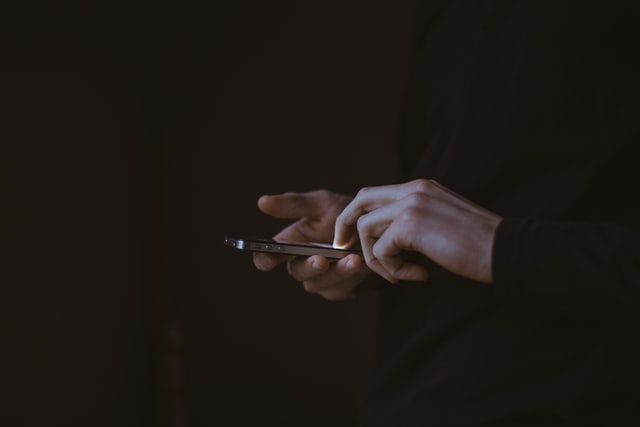If you feel you’re spending a little too much time online lately, these easy to follow steps can help you take a digital detox. A three-minute read.
Let’s face it most of have probably spent too much time online over the past month or so.
We’re seeking distraction, information and reassurance and as useful as our smartphones and tablets can be, they can also be a problem if we use them too much.
Back in 2016, Ofcom, the communications regulator, discovered that more than half of all internet users in the UK felt addicted to life online.
So, there were a lot of people addicted to their devices before the Coronavirus outbreak, and those numbers look likely to surge upwards due to lockdown.
Start with Why?
Why are many of us so addicted to our devices? According to a BBC report, it’s all to do with something called Dopamine.
The article said: “Broadly speaking, tech design seeks to take advantage of our brains’ reward system, where something called Dopamine is activated and leads to feelings of satisfaction and pleasure.
“Our brains are programmed to seek more of whatever gives us this pleasure – so much so that we crave it when we don’t have it. The same system that makes us crave drugs or certain foods can also make us crave particular apps, games, sites and devices.”
How addicted are you?
Four, out of several other, tell-tale signs of digital addiction are, according to a survey by AMEX (formerly American Express), listed below.
Your phone is the first thing you reach for in the morning, and you scroll your social media accounts before getting out of bed.
You feel anxious and irritable if you are in a location with no Wi-Fi or phone signal.
You feel stressed when your phone is out of reach, and you hear it buzz with a notification.
Checking your phone is the last thing you do before going to sleep.
If the above sounds like you, or you simply feel the need for a break from technology, read on because there are steps you can take to seize back some control.
Seven Digital Detox Tips
- Turn off notifications on your phone and tablet.
- Ditch anything digital at mealtimes.
- Create digital No Go Zones – for example, your bedroom, bathroom and kitchen.
- Spring clean your social media. Think about who makes you feel inadequate or insecure and unfollow them.
- For every 20 minutes you look at a screen, look up and at an object 20 feet in the distance for 20 seconds wherever and whenever possible. Also, don’t forget to blink and beware of ‘text neck’ which can be reduced by holding your phone out in front of you rather than looking down at it.
- Yes, it sounds like the opposite of what this article is suggesting, but there are several useful apps out there designed to reduce and monitor your screen time.
- Set tech-free times for you and your family. For example, no digital devices after 7.30 pm or during lockdown before 9 am.
At Rochills, we understand how useful digital devices are, and being online for people is.
As a business, we do a lot of our marketing digitally, but we know and accept that it’s essential for all of us to disconnect from gadgets occassionally so we can reconnect with people and loved ones.
So, why not switch off the devices for a few hours and have some digital-free downtime right now?
Thanks for reading and stay safe, stay home, protect the NHS and let’s keep saving lives across Walton On Thames.




